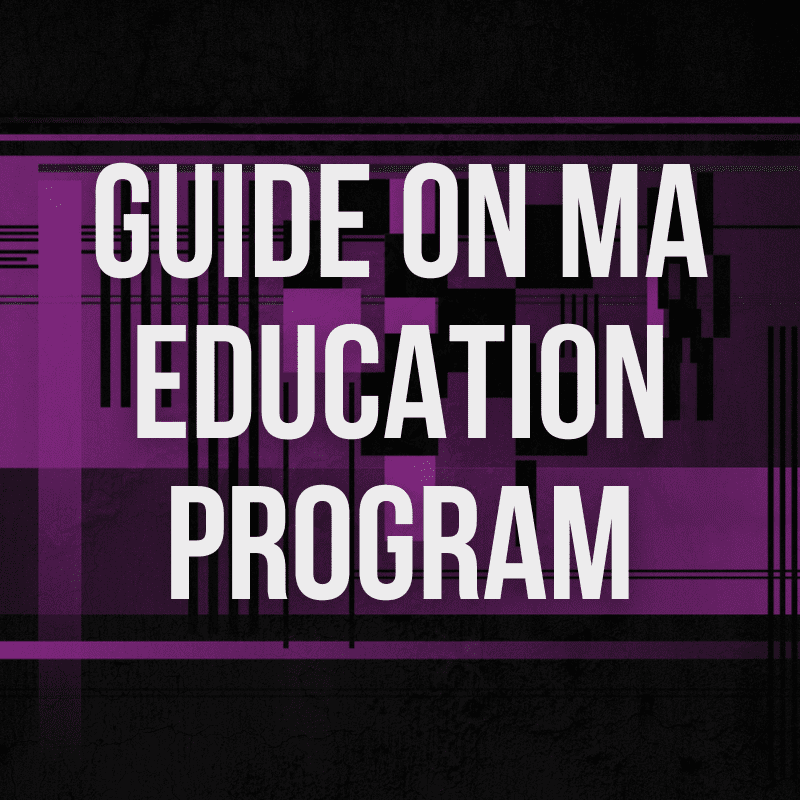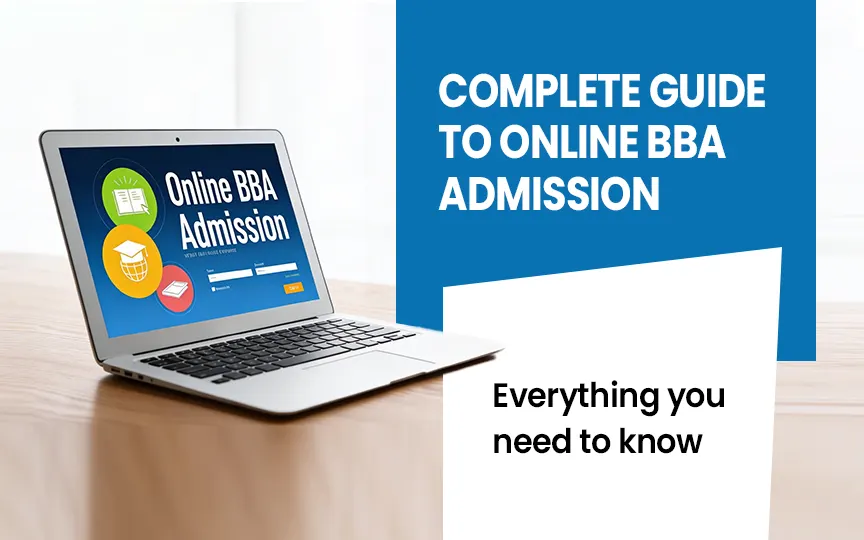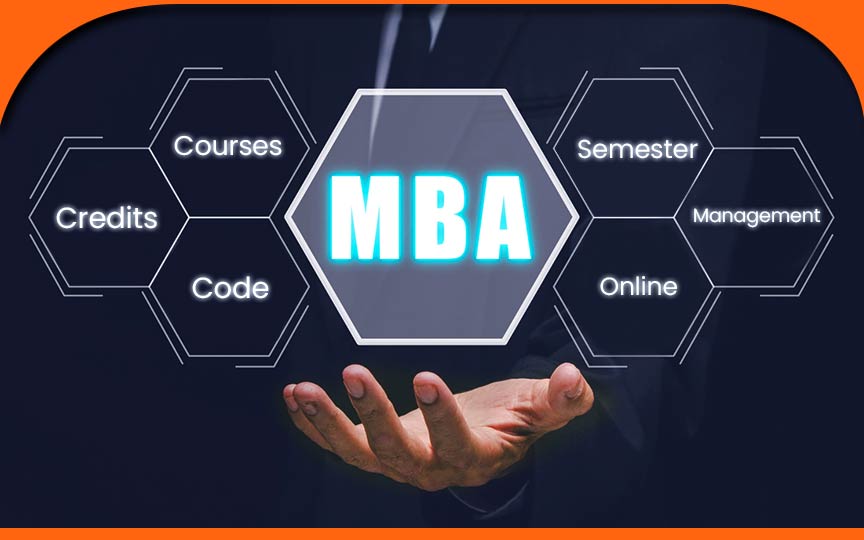Pursuing a Master of Arts (MA) in Education can be a rewarding and valuable choice for individuals interested in the field of education.
Why you should go for an MA Education course?
Here are some compelling reasons to consider enrolling in an MA Education course:
Career Advancement: An MA in Education can open up new career opportunities and lead to higher-paying positions in the field of education. It is often a requirement for leadership roles, such as school administration, curriculum development, or educational consulting.
Specialization: Many MA Education programs offer the opportunity to specialize in areas such as educational leadership, special education, curriculum and instruction, educational technology, or literacy education. This allows you to focus on your specific interests and career goals.
Enhanced Teaching Skills: MA programs typically provide in-depth training in teaching methodologies, assessment techniques, and classroom management strategies, helping educators become more effective.
Deeper Understanding of Educational Theory: You will gain a deeper understanding of the theories and philosophies that underpin education, which can inform your teaching practices and decision-making.
Research Skills: MA programs often include coursework in research methods, which can help you become a more critical thinker and contribute to the improvement of educational practices.
Networking Opportunities: MA programs bring together educators from diverse backgrounds and experiences, providing opportunities to collaborate, share ideas, and build a professional network.
Professional Development: Continuing education is essential for educators to stay up-to-date with the latest trends and best practices in education. An MA program can serve as a valuable form of professional development.
Increased Job Security: Earning an advanced degree can enhance job security in the education field, as it demonstrates a commitment to professional growth and development.
Positive Impact on Students: By improving your knowledge and skills, you can significantly impact the students you teach, helping them achieve better educational outcomes.
Flexibility: Many MA in Education programs offer flexible learning options, such as online or part-time study, which can accommodate the schedules of working educators.
Personal Fulfillment: For those passionate about education, pursuing an MA can be a fulfilling and personally satisfying endeavor. It allows you to deepen your understanding of the field and contribute to the betterment of society through education.
Possibility for Research and Academia: If you aspire to work in higher education or engage in educational research, an MA in Education can be a stepping stone to a Ph.D. program or a career in academia.
Before enrolling in an MA Education program, it’s essential to research different programs, consider your career goals, and evaluate the program’s curriculum, faculty, and reputation to ensure it aligns with your aspirations.
Career prospects after MA Education course
After completing an MA in Education, you will have a wide range of career prospects within the field of education. The specific opportunities available to you may depend on your specialization, prior experience, and personal interests. Here are some common career paths and prospects for individuals with an MA in Education:
Classroom Teacher: Many MA in Education graduates continue to work as classroom teachers, but with an advanced degree, you may qualify for higher-paying positions or specialized roles, such as teaching advanced courses or working with special education students.
School Administrator: An MA in Education can prepare you for administrative roles such as principal, vice principal, or department head. These positions involve overseeing school operations, curriculum development, and staff management.
Curriculum Developer: Curriculum developers work to create educational materials and design instructional strategies. With an MA in Education, you can lead curriculum development efforts at schools or educational organizations.
Educational Consultant: Educational consultants guide schools, districts, or organizations on issues related to curriculum, assessment, teacher training, and more. Your expertise can be valuable in this role.
Education Policy Analyst: If you’re interested in shaping education policy, you can work as an education policy analyst for government agencies, non-profit organizations, or research institutions. Your research and analytical skills will be highly relevant.
College or University Instructor: If you have a passion for higher education, you can teach education courses at colleges or universities. This path often leads to tenure-track positions and opportunities for research.
Educational Researcher: Educational researchers conduct studies to improve educational practices and outcomes. This role can be found in academia, think tanks, educational research organizations, or government agencies.
Special Education Specialist: With an MA in Education, you can specialize in special education and work as a special education teacher, coordinator, or advocate, helping students with diverse needs.
Educational Technology Specialist: The field of educational technology is growing rapidly. Specialists in this area help schools and educators integrate technology into the learning process effectively.
Adult Education Instructor: Adult education instructors work with adult learners in various settings, such as community colleges, vocational schools, or corporate training programs.
Non-profit and Education Advocacy: You can work for non-profit organizations dedicated to education, advocacy groups, or foundations focused on improving educational access and equity.
Private Tutoring or Test Preparation: Some individuals with an MA in Education choose to become private tutors or work for test preparation companies, helping students prepare for standardized tests or providing academic support.
Education Entrepreneurship: You can explore entrepreneurial opportunities in the education sector, such as starting your tutoring center, educational consulting firm, or online education platform.
Training and Development Specialist: In the corporate world, training and development specialists design and deliver employee training programs. Your educational background can be an asset in this role.
Educational Psychologist: Educational psychologists assess and support students’ emotional, social, and cognitive development. They work in schools or private practice, helping students overcome learning and behavioral challenges.
School Counselor: School counselors provide academic, career, and personal counseling to students. They help students make educational and career decisions and address social and emotional challenges.
Online Course Designer/Instructional Designer: With the growth of online education, instructional designers create effective online courses and learning materials for educational institutions and corporations.
Language and Literacy Specialist: Specializing in language and literacy education can lead to roles such as reading specialist, literacy coach, or ESL (English as a Second Language) instructor.
Education Law and Policy Advocate: Advocates in this field work to influence education policy and law to improve educational opportunities and equity.
Youth Development Specialist: These professionals work with youth organizations, community centers, or afterschool programs to create enriching and educational activities for young people.
Education Writer or Blogger: If you have strong writing skills and a passion for education, you can pursue a career in education journalism, writing articles, blogs, or books on educational topics..
Remember that the job market and specific opportunities may vary by region and evolve, so it’s essential to stay informed about emerging trends and the needs of the education sector in your area of interest. Additionally, networking, internships, and professional development can help you explore and secure these career prospects. Keep in mind that the specific job titles and opportunities available to you will vary depending on factors like your location, specialization, and prior experience. Networking, internships, and staying up-to-date with industry trends can also significantly impact your career prospects after completing an MA in Education.
Salary range after MA Education course in India
The salary range for individuals with an MA in Education in India can vary widely depending on several factors, including your specialization, location, level of experience, and the type of institution or organization you work for. Here is a general overview of potential salary ranges for different career paths after completing an MA in Education in India:
Classroom Teacher: The salary for teachers in India varies based on the state, city, and the school’s affiliation (government, private, or international). Entry-level teachers with an MA in Education can expect salaries ranging from INR 25,000 to INR 45,000 per month. With experience and qualifications, salaries can increase significantly.
School Administrator: School administrators, such as principals or vice-principals, can earn higher salaries. Depending on the school’s size and location, salaries for school administrators typically range from INR 50,000 to INR 1,50,000 per month or more.
Curriculum Developer: Curriculum developers often work for educational publishing companies or educational technology firms. Salaries can vary widely but typically start around INR 30,000 to INR 60,000 per month.
Educational Consultant: Salaries for educational consultants can vary greatly based on their level of expertise and the scope of their projects. Entry-level consultants may earn around INR 25,000 to INR 50,000 per month, while experienced consultants with a strong reputation can earn substantially more.
College or University Instructor: College or university instructors often receive salaries based on their qualifications and experience. Salaries can range from INR 40,000 to INR 1,50,000 or more per month, depending on the institution and location.
Educational Researcher: Research positions in educational institutions or organizations may offer salaries ranging from INR 30,000 to INR 70,000 or more per month, depending on experience and the research project’s scope.
Special Education Specialist: Salaries for special education specialists can vary based on the type of institution (public or private) and the region. Entry-level specialists may start around INR 25,000 to INR 50,000 per month.
Online Course Designer/Instructional Designer: Salaries for instructional designers can range from INR 30,000 to INR 70,000 or more per month, depending on the organization and the complexity of the projects.
Education Sales and Marketing: Sales and marketing professionals in the education sector may earn salaries ranging from INR 20,000 to INR 60,000 or more per month, depending on the position and the company.
It’s important to note that these figures are approximate and can vary significantly based on regional cost of living, demand for specific skills, and the economic conditions in India. Additionally, salaries may increase over time as you gain more experience and expertise in your chosen field.
Subjects taught
The specific subjects taught in an MA in Education program can vary from one university or college to another, as well as depending on the program’s focus or specialization. However, there are common core subjects and themes that are typically covered in most MA in Education programs. Here are some typical subjects and areas of study you might encounter:
Foundations of Education: This course often explores the historical, philosophical, and sociological foundations of education, helping students understand the broader context of the field.
Educational Psychology: Educational psychology courses delve into the cognitive, emotional, and social aspects of learning, as well as the principles of human development and motivation.
Curriculum and Instruction: These courses focus on curriculum development, instructional strategies, and assessment techniques to improve teaching and learning.
Research Methods in Education: Students learn about research methodologies, data collection, and analysis techniques to conduct educational research.
Education Policy and Administration: This subject covers the principles of educational leadership, school management, and education policy at various levels, including local, national, and international contexts.
Diversity and Inclusion in Education: Courses in this area examine issues related to diversity, equity, and inclusion in educational settings, including multicultural education and special education.
Educational Technology: With the increasing role of technology in education, these courses explore the use of technology tools and digital resources for teaching and learning.
Assessment and Evaluation: This subject focuses on the development of assessment tools and techniques to measure student learning outcomes and program effectiveness.
Special Education: Special education courses cover topics related to the education of students with disabilities and may include subjects like inclusive education and behavior management.
Language and Literacy Education: Courses in this area explore language acquisition, reading instruction, and literacy development.
Global and Comparative Education: Students may study international education systems, policies, and comparative education research.
Adult and Lifelong Learning: These courses focus on adult education theory and practice, including topics like adult learning theories and program development for adult learners.
Research Seminar or Thesis: Many MA in Education programs require students to complete a research seminar or thesis, where they conduct original research on an educational topic of their choice.
Field Experience or Practicum: Some programs include a practicum or internship component, allowing students to gain hands-on teaching or administrative experience in educational settings.
Elective Courses: Depending on the program, students may have the opportunity to choose elective courses that align with their interests and career goals. These electives can cover a wide range of educational topics.
It’s important to note that the specific subjects and course offerings can vary widely between institutions and programs, so it’s essential to review the curriculum of the MA in Education program you are interested in to understand its unique course offerings and requirements. Additionally, some programs may offer specialized tracks or concentrations in areas such as educational leadership, early childhood education, or educational technology, allowing students to tailor their studies to their specific interests and career goals.
Practical during MA Education course
MA in Education programs typically focus more on theoretical and research-oriented coursework rather than hands-on practicals or laboratory work as you might find in science or technical fields. However, there are practical aspects to an MA in Education that can provide valuable real-world experience and application of knowledge. These practical components can vary depending on the program and institution but may include the following:
Teaching Practicum: Some MA in Education programs, particularly those that prepare students for careers as classroom teachers, may include a teaching practicum or internship. During this practicum, students work in actual classrooms under the guidance of experienced educators. They may observe and assist in teaching, plan lessons, and gain practical teaching experience.
Fieldwork and Observations: Education programs often require students to conduct fieldwork in educational settings. This could involve observing classrooms, conducting interviews, or collecting data to support research projects or assignments.
Action Research: Some programs incorporate action research projects, where students design and implement research studies in real educational contexts. This allows students to apply research methodologies and gain practical research experience.
Curriculum Development Projects: Courses in curriculum and instruction may involve students in creating, implementing, and assessing educational materials and curriculum plans. This hands-on work can help students understand how to design effective teaching materials and strategies.
Assessment and Evaluation: Practical experience in assessment and evaluation can include developing and administering assessments, analyzing data, and using assessment results to inform instructional decisions.
Educational Leadership Projects: For students pursuing educational leadership or administration, programs may include projects that involve school improvement plans, policy analysis, or leadership initiatives within schools or educational organizations.
Technology Integration: In today’s digital age, some programs may require students to develop and implement technology-integrated lesson plans or educational technology projects.
Special Education Practicum: If you’re specializing in special education, your program may include a practicum in which you work with students with disabilities, developing and implementing individualized education plans (IEPs) or behavioral intervention plans.
Adult Education and Training: Programs focused on adult education may include opportunities for students to design and deliver training sessions or adult education programs.
Community Engagement: Some programs encourage community engagement projects, where students work with community organizations or conduct outreach activities related to education and social issues.
Research Seminars or Thesis: While not practical in the traditional sense, research seminars or thesis projects involve conducting original research in the field of education. This research allows students to apply research methodologies and contribute to the knowledge base of education.
It’s important to note that the specific practical components of an MA in Education program can vary significantly based on the program’s focus, specialization, and the institution offering the degree. Therefore, when considering an MA in Education program, it’s essential to review the curriculum and inquire about the practical experiences and opportunities that are integrated into the program to ensure they align with your career goals and interests.







